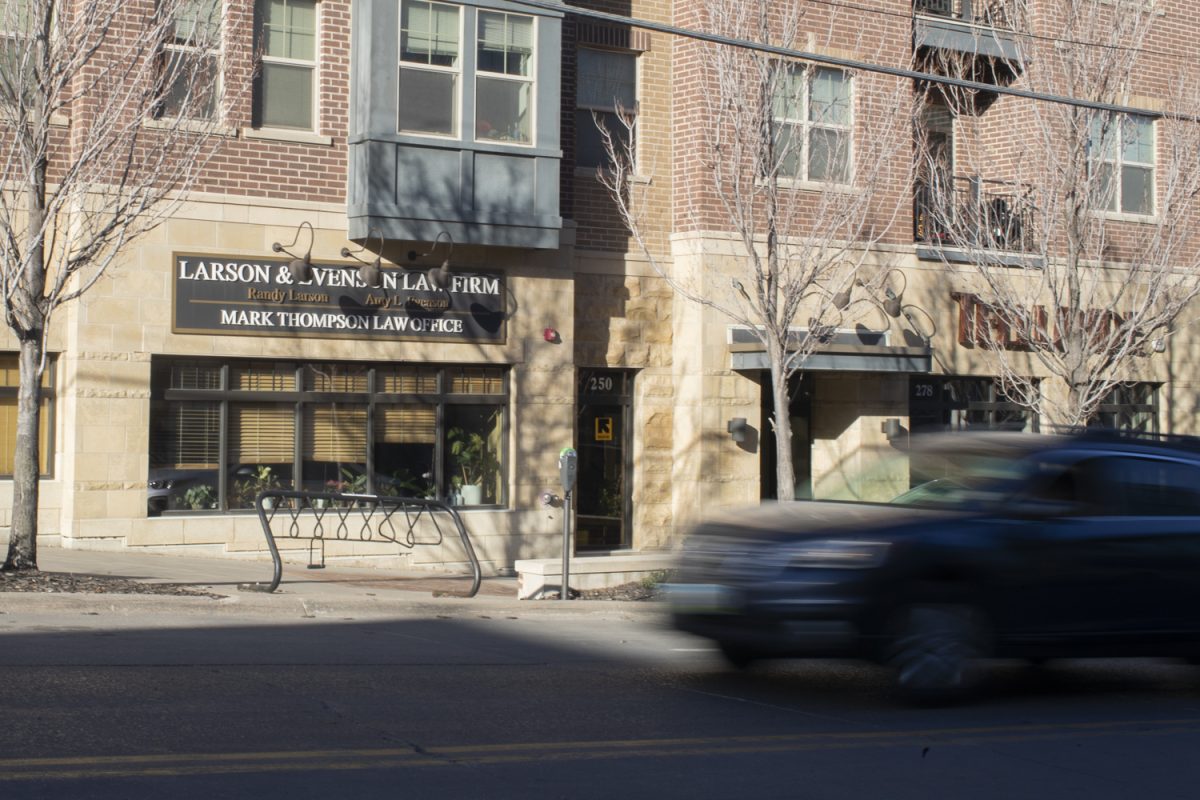The International Rescue Committee, a global organization that rehomes refugees, is helping settle around 100 refugees in Iowa City over the next couple of months after opening an Iowa City office late last year.
The International Rescue Committee Sarah Terlouw said the organization has a Des Moines office that has been in operation since June 2022. She said the Iowa City office, located at 250 E. Court St., opened in December 2023 and is set to receive incoming refugees in the next few weeks.
The refugees that the Iowa City office is helping resettle are from the Democratic Republic of the Congo, Afghanistan, and Sudan, Terlouw said. All of these countries are currently experiencing some sort of conflict within them, she said, which leads to many of their residents finding themselves in dangerous living situations.
Once the refugees land at the Cedar Rapids airport, International Rescue Committee staff will pick them up and take them to a living arrangement.Once the refugees are housed, the committee helps them get settled into the community by registering any children they may have in schools and helping the refugees find employment, Terlouw said.
The arrival times for each individual differ, but all 100 refugees will arrive before the end of September, according to Terlouw.
In efforts to assist unaccompanied minors who are refugees, the International Rescue Committee will launch a new program aimed at these individuals to get documentation and connect with a guardian, Terlouw said. The program will start March 1.
Terlouw also said the International Rescue Committee collaborates with local organizations that also serve the immigrant and refugee population of the city.
Mazahir Salih, Iowa City’s mayor pro tem and executive-founding director of the Immigrant Welcome Network of Johnson County, said the work the committee is doing is amazing, but there needs to be more resources in the area to help support immigrants and refugees throughout their time in Iowa City.
A major issue that impacts the refugee and immigrant community is being able to afford housing, Salih said.
“That’s why we just tend to see refugees become homeless immediately after seven days, or maybe less than that, because they come with all this hope that they will find a house the next day, but that’s not the case,” Salih said. “They go and stay in a hotel, and they spend all the money that they have, and after that they become homeless.”
The International Rescue Committee accepts volunteers and interns to assist with their organization, Terlouw said. There is currently a class at the University of Iowa that is partnering with the committee to help them improve their organization.
“Community Engaged Learning with Refugees and Immigrants in Iowa” is taught by UI lecturer in the International Studies Program, Peter Gerlach, who is also the executive director of the Iowa City Foreign Relations Council.
Currently, the class of around 20 students is working on researching past, present, and potential future political environments and presidential administrations regarding their views and policies on immigrants and refugees, Gerlach said.
This research will then be communicated to the International Rescue Committee to help give them ideas on how they can adapt to these landscapes, he said.
Each student is also required to volunteer for at least 10 hours with the committee, Gerlach said. This requirement could include helping do administrative tasks in the committee’s office or moving refugees into their new homes, he said.
Terlouw, Salih, and Gerlach all expressed how much of a need there is in Iowa City for supportive resources like resettlement programs.
She said a new International Rescue Committee office in Iowa City made sense because of how diverse and welcoming the city is as well as how much cheaper its cost of living is compared to more urban parts of the U.S.
“The community was so excited when we first came and sort of explored if we should consider Iowa City for an office,” Terlouw said. “It was such an enthusiastic engagement from the community, including a lot of the university community, that it just felt like such an easy choice.”



